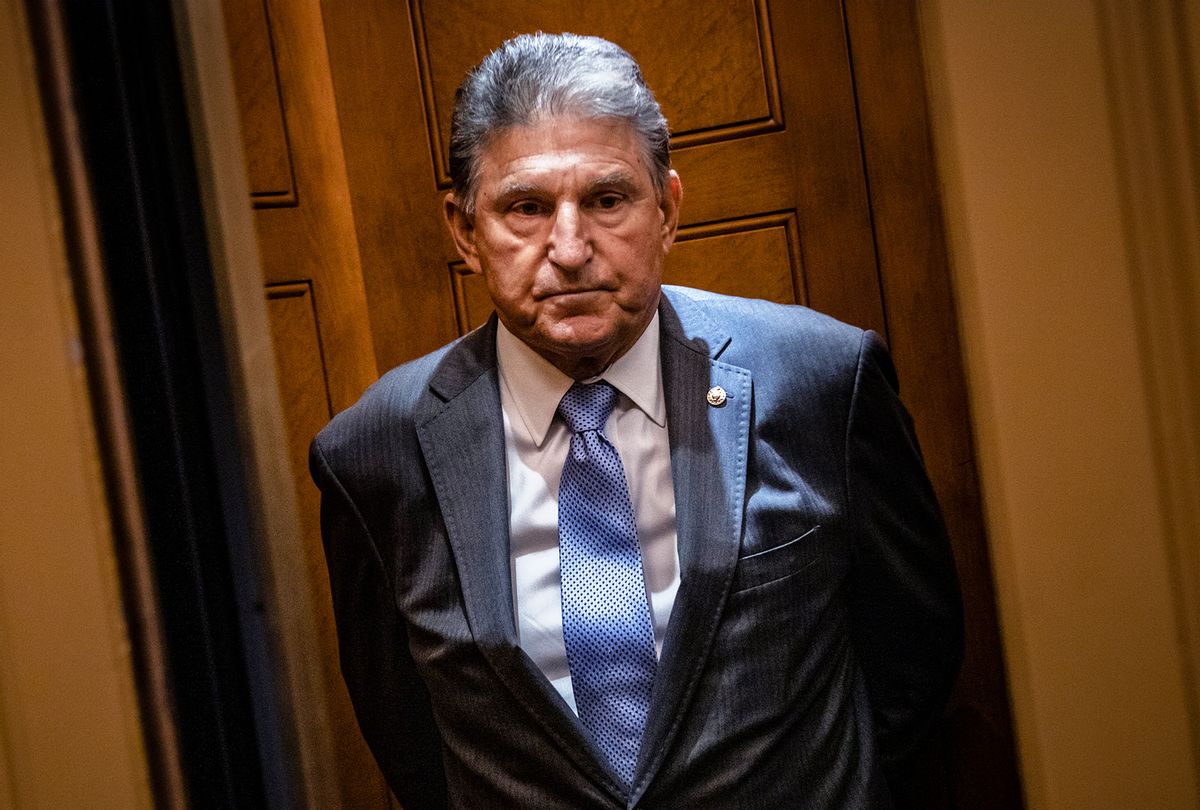Senator Joe Manchin, the most prominent decision-maker on American energy and climate policy, has spent decades raking in revenue from his private coal business. A recent investigation by the New York Times illustrates what's been described as "a stunning portrait of political corruption," detailing how the conservative Democrat's political decisions have benefitted his financial connection to a West Virginian power plant, calling into question the ethical line the senator is toeing between business and politics.
Manchin's involvement with the Grant Town power plant began in 1987, when he helped clear several environmental obstacles that allowed two developers to build the plant slightly outside Manchin's district. The Environmental Protection Agency was concerned the plant was too close to another coal-burning plant in the area which could potentially produce disastrous impacts. The Democrat then went into business with the plant through a handful of shifting electricity companies and contracts which the Times describes as "a bit like handling a set of Russian nesting dolls." A company owned by Manchin provided the Grant Town plant "gob," (an acronym for garbage of bituminous), a mining byproduct of coal and rock which can be used to produce electricity. The Grant Town power plant has been the only customer for over 20 years. So a portion of the plant's electricity revenue, which comes from the electric bills played by Machin's constituents, goes directly into the senator's pockets. Because Gob is less energy efficient than pure coal, West Virginians have lost millions of dollars in excess electricity fees over the years.
The Times investigation highlights how Manchin's political agenda has aided the power plant over the years.
Reporting reveals that Manchin championed tax credits that aided the plant and was involved in enabling a rate increase that hiked electricity prices for West Virginians, therefore benefiting himself economically through the plant's increased revenue. Manchin has also been a vocal dissenter of the Environmental Protection Agency's proposed limits on power plant emissions.
Manchin declined an interview with the Times but in the past has justified his political maneuvers as in the interest of West Virginian industry and has stated his business relationship with the Grant Town plant has given West Virginians jobs. He has also said no rules have been broken in his business dealings with the power plant.
Manchin remains a key holdout on Biden's Build Back Better Act, a massive legislative package that includes provisions for social and environmental spending. The package was blocked by the West Virginia senator, ending a potential $555 billion dollar investment into clean energy. The bill would have accelerated the country's reliance on renewable energy resources like wind and solar, moving away from dependence on fossil fuels.
In consideration of the ongoing war in Ukraine, Manchin has openly advocated for American companies to increase oil and gas production as Russia has left a gap in the supply chain.



Shares